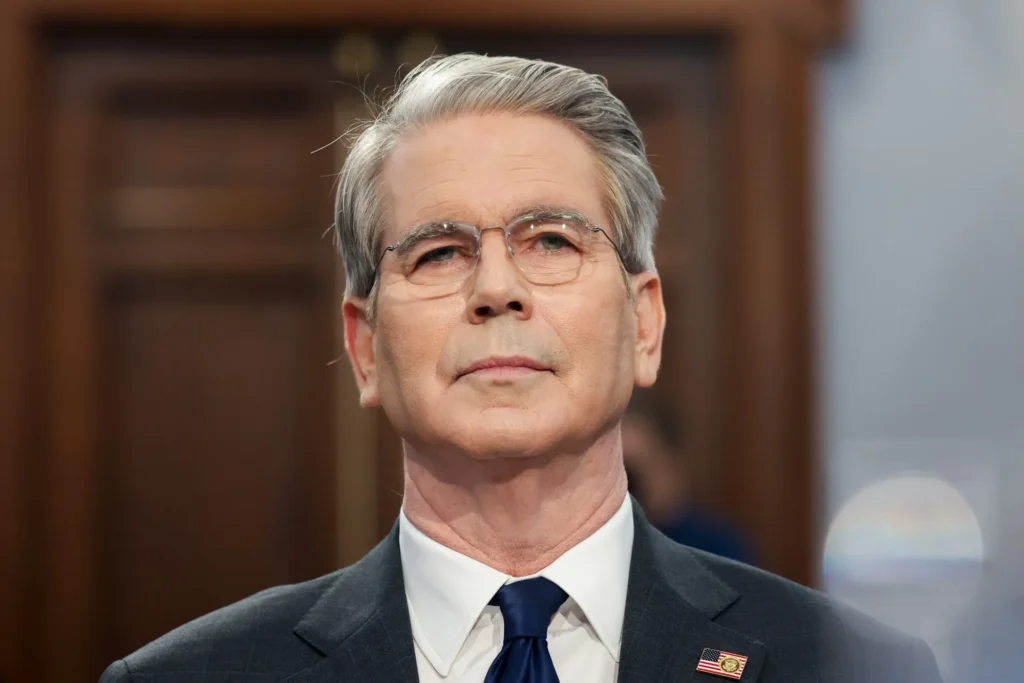It is now official. After waiting for a few days since Donald Trump diluted the U.S. tariff rates for China and announced his intention for talks, China confirmed on Wednesday morning that a high level Chinese negotiating team will be visiting Switzerland for four days beginning May 9 to hold talks with the U.S. high level delegation led by the treasury secretary Scott Bessent. This was a result of back channel discussions carried out in the last few days by the two offices of President Trump and President Xi Jinping.
In the ongoing tariff war between U.S. and China, President Trump blinked first late last month when he brought down the rates on some Chinese goods and said that he would talk with President Xi and sort out. Soon after he said that he said that he talked to the Chinese President. He is in the habit of exaggerating. He did not speak directly to President Xi but his advisers were in touch with the officials of the Chinese President. So that way what Trump said about his meeting with Xi was half true. The officials of the two presidencies were talking.
Now after some basics were discussed, the two delegations will be meeting in a third country Switzerland for four days to go into details. The trade talks may not be conclusive this time but this will facilitate the process of holding further meetings so that Trump and Xi can finally meet and sign the agreement. What has to be remembered is that the trade talks are only a part of an overall agreement that Trump is trying to arrive with Xi Jinping as a part of his global narrative. This will be time consuming and if needed will be compartmentalised so that other areas are not affected.
The Chinese sources maintained after the announcement that China’s position is consistent. Whether it is confrontation or negotiation, China’s resolve to safeguard its development interests will never waver, neither will its stance and objectives in upholding international fairness and justice and the global economic and trade order. We will fight if we must. Our doors are open, if the US wants to talk. Dialogue and negotiation must be based on equality, respect and mutual benefit, the spokesperson continued.
He Weiwen, a senior fellow at the Center for China and Globalization, told the Global Times on Wednesday that the upcoming meeting between Chinese and US officials in Switzerland marks a positive development. “The fact that the two sides will meet is a good sign, but the key lies in the US side,” He Weiwen noted, stressing that whether any substantial outcome emerges will depend on Washington’s willingness to correct its unjust and illegal tariff policy – without preconditions or demands on China. “There can only be meaningful negotiations if the US reverses its mistakes,” he said.
Global trade experts have noted that the Trump was more interested in early dialogue because his advisers told him that the Chinese President XI is talking to a large number of trade partners of U.S and if Trump still sticks to his strong tariff position on China and other countries, XI will make use of time to influence some more countries to take stand against the USA. The US has trade partnerships with 180 countries but most important are50 to 75 countries which the US president expect to start trade negotiations within the 90 day pause which expires in the first week of July this year.
Only on May 4 during the 28th ASEAN Plus Three Finance Ministers’ and Central Bank Governors’ Meeting which took place in Milan, Italy, ASEAN members along with China, Japan, and South Korea, called for enhanced regional unity and cooperation to address heightened uncertainties, including rising protectionism and volatile global financial conditions in a joint statement issued after the meeting.
The joint statement, which did not mention the US by name, came as sweeping new US tariffs threaten to hit Southeast Asia hard, Nikkei Asia reported.
Chinese Finance Minister Lan Fo’an attended the meeting and co-chaired some sessions. Lan emphasized that the global economy is undergoing profound adjustments, with globalization encountering headwinds and rising unilateralism and protectionism. Instability and uncertainties have notably increased. The 10+3 regional economies demonstrate strong resilience and have significant growth potential, but they also face complex and severe internal and external challenges.
China is willing to work with all parties in the 10+3 framework to uphold openness and inclusivity, promote solidarity and cooperation, and continuously deepen regional financial collaboration, in order to address global instability and uncertainty with the stability and certainty of this region, Lan said.
The joint statement issued after the meeting released on ASEAN website noted that “escalating trade protectionism weighs on global trade, leading to economic fragmentation, affecting trade, investment, and capital flows across the region. Near-term prospects may also be affected by other external risks, including tighter global financial conditions, growth slowdown in major trading partners, and reduced investment flows.”
The US is most friendly with Japan and ASEAN countries but still the tone of the statement issued after the summit indicated the influence of China in giving it a direction against the Trump’s unilateral tariff hike move. What China is doing now to outsmart the USA in trade diplomacy is that President Xi is presenting himself as the protagonist of rule based globalization as against the gross protectionism of the USA. The US advisers have noted this and have told Trump to engage China in trade negotiations so that other countries also follow.
The global tariff war has also affected China adversely in some sectors. Though China does not admit, the production scale been brought down in some sectors which have been highly affected in the latest tariff war. Chinese economy has resilience but it is so much dependent on export to the U.S. market that it has very limited options if Trump does not change his rates. Similarly Trump also has his compulsions in coming to a trade deal with China as early as possible. But geo politics is involved in a big way as two largest economies of the world fight for supremacy. The Switzerland talks from May 9 will indicate the trends of the evolving trade relationship between the two countries. (IPA Service)



 Bank Spread Narrows To 10-Year Low Of 2.71% In March: CareEdge
Bank Spread Narrows To 10-Year Low Of 2.71% In March: CareEdge 